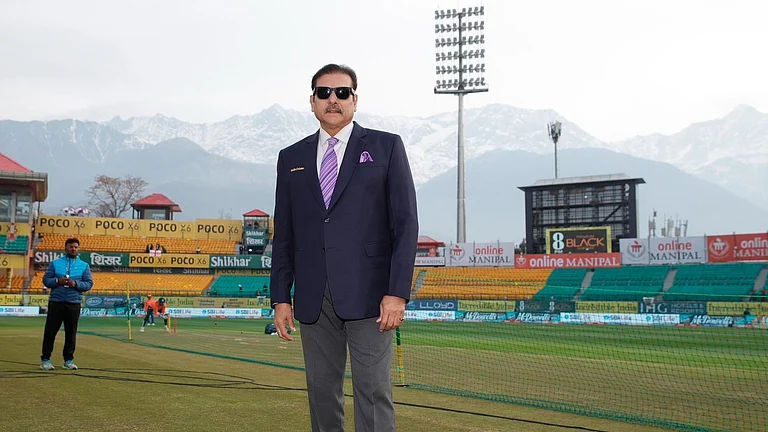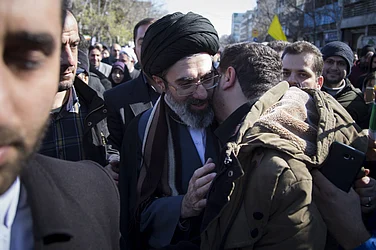At a meeting in Spain on November 27, Arab states and the European Union reached a consensus supporting a two-state solution to the Palestinian-Israeli war, with EU foreign affairs chief Josep Borrell saying the Palestinian Authority should rule Gaza, as reported by Reuters.
Borrell said all EU members attending the meeting of Mediterranean nations in Barcelona and almost all attendees had agreed on the need for a two-state solution.
The two-state solution calls for establishing an independent nation of Israel alongside that of Palestine.
Arab Nations’ Stance On Israel’s War On Gaza:
In the historical context, Palestinian issue has long been considered an integral concern for Arab nations. The rejection of the UN's Resolution 181 in 1947, which proposed the partition of Palestine into Arab and Jewish states, led to the commencement of the First Arab–Israeli War.
Though, recent times have witnessed a transformation in the dynamics of Arab-Israeli relations. Arab countries, traditionally viewing the Palestinian problem as their own, have entered into amicable ties with Israel in pursuit of regional peace.
This shift has made experts say that the abandonment of the Palestinians is directly related to the undemocratic nature of Arab regimes and their continuing political dependence on the United States, the main supporter of Israel and its settler-colonial project. Despite verbal condemnations of Israel's bombings on Gaza, which has killed 14,800 Palestinian people so far, Arab countries find themselves grappling with the inability to halt the ongoing war.
European Union’s Stance on Israel’s War on Gaza:
The European Union (EU), on the other hand, assumes a prominent role in the Israeli-Palestinian war, serving as Israel's primary trade partner and the largest aid donor to the Palestinians. The EU has actively endorsed peace agreements, financially supported the Palestinian Authority, and undertaken initiatives such as launching a mission to assist the Rafah border crossing between Egypt and the Gaza Strip—an area evacuated by Israel in 2005.
Despite these efforts, the EU faces challenges in presenting a unified front. According to the experts, no European country is powerful enough to stand alone as a major player; but together, they are too divided. Their voices verge on inaudible, especially when it comes to going against Washington’s positions which has so far been the biggest cheerleader of Israel.
The European Union has 28 member countries including Finland, France, Germany, Greece, Ireland, Italy, Poland, Portugal, Romania, Spain and Sweden.
In the latest development, an initial four-day truce has been extended by two days, mediator Qatar said, in the first halt in fighting in the seven weeks since Hamas attacked Israel, killing 1,200 people and taking about 240 hostages into Gaza, according to Israeli tallies.
In response to that attack, Israel bombarded the enclave and mounted a ground offensive in the north. 14,800 Palestinians have been killed, according to Gaza health authorities and nearly 884,000 people have been displaced.






















